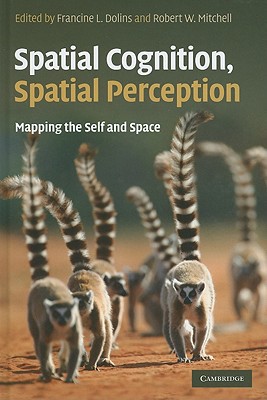

Most ebook files are in PDF format, so you can easily read them using various software such as Foxit Reader or directly on the Google Chrome browser.
Some ebook files are released by publishers in other formats such as .awz, .mobi, .epub, .fb2, etc. You may need to install specific software to read these formats on mobile/PC, such as Calibre.
Please read the tutorial at this link: https://ebookbell.com/faq
We offer FREE conversion to the popular formats you request; however, this may take some time. Therefore, right after payment, please email us, and we will try to provide the service as quickly as possible.
For some exceptional file formats or broken links (if any), please refrain from opening any disputes. Instead, email us first, and we will try to assist within a maximum of 6 hours.
EbookBell Team

0.0
0 reviewsSpatial cognition is discussed in relation to the internal mapping of external stimuli (e.g. landmarks and sensory perception of environmental information), the internal mapping of internally perceived stimuli (e.g. kinesthetic and visual imagery), and their subsequent effects on behavior. The diverse ways in which spatial information is encapsulated in perceptual and cognitive processes, allowing the self to move in space, are then examined. Major points and controversies in human and non-human animal spatial cognition, spatial perception, and landmark recognition are discussed comparatively within an evoluntionary framework. Written for postgraduate students and researchers, the authors present theoretical and experimental accounts at multiple levels of analysis - perceptual, behavioral, developmental, and cognitive - providing a thorough review of the processes of spatial cognition.